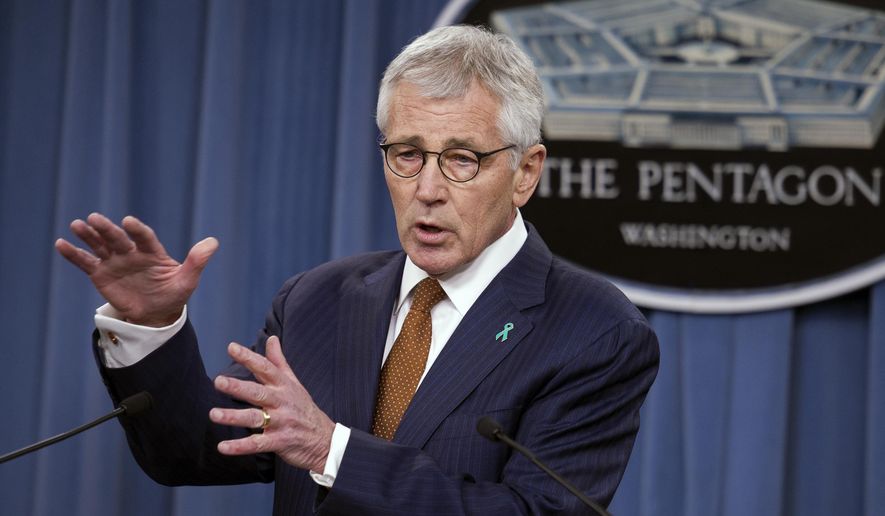The Pentagon dismissed an attack on its social media sites Monday as “cybervandalism,” hitting back at an aggressive effort by supporters of the Islamic State to wrest control of Twitter and YouTube accounts belonging to U.S. Central Command.
The command’s Twitter and YouTube sites “were compromised for approximately 30 minutes,” a statement released by CENTCOM said. “These sites reside on commercial, non-Defense Department servers, and both sites have been temporarily taken offline while we look into the incident further. CENTCOM’s operational military networks were not compromised, and there was no operational impact to U.S. Central Command.”
The tweets from “Central Command” began about 12:30 p.m. and continued until military officials shut down the various social media accounts about a half-hour later — as President Obama was giving a speech about cybersecurity at the Federal Trade Commission.
“ISIS is already here, we are in your PCs, in each military base. With Allah’s permission we are in CENTCOM now,” said one hacked tweet sent from @CENTCOM’s account.
Referring to itself as the Cyber Caliphate, the hacker group issued threats in English and other languages to CENTCOM, which has been leading an airstrike campaign against Islamic militants in Iraq and Syria since August 2013.
The Islamic State supporters threatened the families of CENTCOM soldiers, stating in a second message, “We won’t stop. We know everything about you, your wives and children.”
SEE ALSO: U.S. Central Command Twitter account hacked: ‘ISIS is already here’
The FBI said it is investigating the incident and is working with the Defense Department to determine the nature and scope of the attack.
A tweet sent out by the hacker activist group Anonymous, which recently “declared war” on al Qaeda and the Islamic State over the Charlie Hebdo killings in Paris, said the group was certain the attack came from an IP address somewhere in Maryland.
Government officials declined to comment on Anonymous’ accusation.
Pentagon officials rebutted initial suggestions that the attack was substantial, even though hackers were able to expose the personal information of retired military officers and threaten their family members.
“It’s an annoyance. It’s an inconvenience, but that’s all it is. No Department of Defense systems or networks have been compromised to our knowledge,” Pentagon spokesman Army Col. Steve Warren said.
White House Press Secretary Josh Earnest was quick to downplay the threat posed by the hack — especially in comparison to the Sony hack late last year. “There’s a significant difference over what is a large data breach and the hacking of a Twitter account,” Mr. Earnest said.
Still, Homeland Security Chairman Rep. Michael McCaul, Texas Republican, depicted the attack as “severely disturbing.”
“Assaults from cyber-jihadists will become more common unless the administration develops a strategy for appropriately responding to these cyberattacks — including those like the North Korea attack against Sony,” the Texas Republican said.
Ian Wallace, a visiting fellow for cybersecurity at the Brookings Institution, agreed that the hackers’ limited access meant the attack was no catastrophe. Still, he said government officials should not to dismiss it as no big thing, saying the attack was less about cybersecurity and more about appearances.
“Many people, especially supporters of the jihadists who were apparently responsible, will not appreciate the distinction,” he said. “For them, and probably a good few non-technical Americans too, this will look like the bad guys giving the U.S. military a bloody nose. That is obviously not a very helpful impression to leave from a public diplomacy perspective.”
• Maggie Ybarra can be reached at mybarra@washingtontimes.com.




Please read our comment policy before commenting.